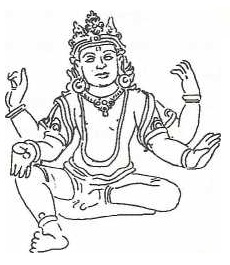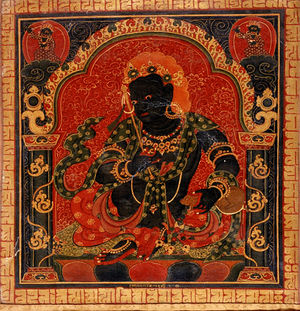Kubera
From Hindupedia, the Hindu Encyclopedia
By Swami Harshananda
Kubera was the king of Laṅkā. He was born as the son of the sage Viśravas and Devavarṇi. When his cousins, Rāvaṇa and Kumbhakarṇa, defeated him in a battle and usurped his kingdom, he did severe penance to please Lord Śiva. By his grace, he built a new kingdom and capital known as Alakāpurī on the Himalayas near Kailāsa, the abode of Śiva.
Kubera was the lord of the yakṣas[1] and possessed immense wealth. Nalakubara, famous for his extraordinary handsomeness, was his son from his wife Riddhi. He blessed Arjuna when he was per-forming tapas in the Indrakīla mountain with several divine weapons. Kubera is one of the eight dikpālakas, protectors of the quarters, ruling over the North.
References[edit]
- ↑ Yakṣas are a type of demigods.
- The Concise Encyclopedia of Hinduism, Swami Harshananda, Ram Krishna Math, Bangalore


